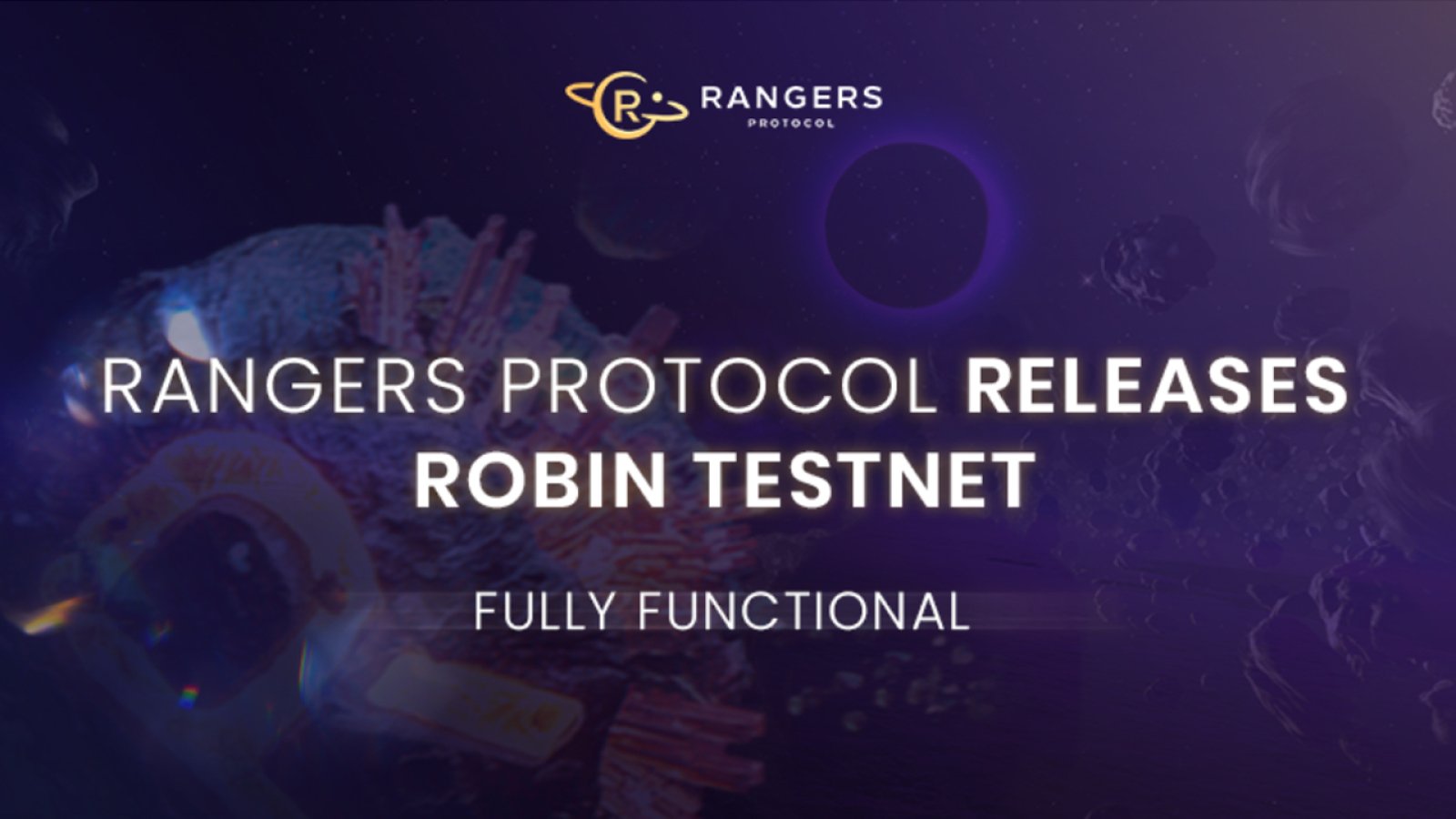
On November 4, 2021, the blockchain infrastructure Rangers Protocol officially released its Testnet Master version, Robin Testnet.
Robin Testnet already possesses the main functions of Rangers Protocol's mainnet — Rangers Engine and Rangers Connector. It provides test channels for both developers and users.
Rangers Engine
The Rangers Protocol team has already released the developer documentation and opened up the testing permissions for Rangers Engine, the core part of Rangers Protocol that mainly supports developers in deploying NFT and complex applications. It includes:
- The RPOS-based VRF+BLS consensus mechanism;
- The EVM-compatible virtual machine REVM;
- The NFT protocol that can contain historical data of the entire NFT life cycle;
- The storage module responsible for asset and data storage;
- The node module responsible for block generation.
Now, developers can directly deploy smart contracts and dapps on Rangers Engine by referring to the development documentation.
Rangers Connector
Rangers Connector is responsible for completing the interconnection with various public chains. The test on Rangers Connector has two stages: closed testing and the open one. During the closed test period, developers and users need to email the Rangers Protocol team to apply for test permissions. After the open test starts, all users can claim test NFTs. Having obtained the test NFT, developers and users can experience the cross-chain process in the NFT cross-chain website. Developers who want to deploy cross-chain contracts should contact the official Rangers Protocol team in advance for technical docking.
With the primary function of providing cross-chain services for developers and users. Rangers Connector includes:
- A consensus mechanism based on VRF+TSS;
- Full nodes of the origin chain and target chain responsible for providing trusted data services;
- Modules responsible for cross-chain transactions.
Robin Testnet Main Tools
Apart from the above, Robin Testnet is equipped with two critical tools: Robin Faucet and Rangers Scan. Robin Faucet allows developers and users to claim $RPG test coins, which can be used to deploy dapps and experience gas fee consumption during cross-chain. Rangers Scan allows users to query and browse transaction data of both FT and NFT.
Rangers Protocol’s Recent Updates
Before the Robin Testnet launch, Rangers Protocol had already stood out conspicuously in the blockchain market.
On October 7, $RPG conducted an IDO on Polkastarter. The current token price maintains around $26.
On November 1, the South Korean crypto exchange Bithumb held a $MIX (ecosystem token of Rangers Protocol incubator MixMarvel) trading competition, where transaction winners receive $RPG airdrops.
The competition is underway, sparking discussions on Rangers Protocol among many Korean media and KOLs. A popular local KOL named Yali said, "Due to the good relationship between MixMarvel, Binance, and Bithumb, Rangers Protocol has also gained everyone's trust. It is coupled with the endorsement of authoritative investment institutions and has set up a good trend since the TGE of $RPG. I am very confident in it."
On November 3, Rangers Protocol released an event called Loot Rangers. This campaign puts the creators as the subject of the NFT community creation. As can be seen from the official announcement, Loot Rangers has set a generous bonus to encourage all creators to participate in co-creation. The winning entries are determined by voting by all community members on Discord. Top designs will be minted into NFTs on the upcoming Rangers Protocol Mainnet Launch.
Company details
-
OrganizationRangers Protocol
-
Website:
Disclaimer:Disclaimer: This is sponsored content. The information on this page is not endorsed or supported by U.Today, and U.Today is not responsible or liable for any inaccuracies, poor quality, advertising, products or other materials found within the publication. Readers should do their own research before taking any actions related to the company. U.Today is not responsible, directly or indirectly, for any damage or loss caused or alleged to be caused by or in connection with the use of or reliance on any content, goods or services mentioned in the article.
 Vladislav Sopov
Vladislav Sopov